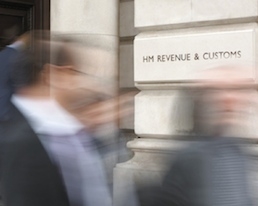Inheritance tax (IHT) receipts rose to £0.5bn in April, a £10m rise year-on-year.
The Treasury will receive £37bn in IHT payments over the next five years, according to the Office for Budget Responsibility.
With the freeze on IHT thresholds until 2026, high inflation, and rising property prices more estates are being pushed above the threshold.
Rosie Hooper, Chartered Financial Planner at Quilter, does not see any drop in IHT receipts coming any time soon.
She said: “These ever-increasing figures show that the government are gradually increasing tax revenues without significantly increasing the burden on taxpayers. However, IHT was once viewed as a tax on wealthier individuals, but the reality is that the average UK property price has continued to creep ever closer to the standard NRB. With the NRB and RNRB frozen until 2026 and house prices still on the up, many more people could face a hefty IHT bill.
“While house prices may soon see a slowdown due to the long list of financial concerns facing the UK, particularly inflation which now looks set to hit double figures, this is unlikely to take the sting out of IHT bills for some time.”
Julia Rosenblood, tax partner at Tilney Smith & Williamson, said the upward trend could provide the opportunity for Financial Planners to prove their worth.
She said: “The need for families to take professional advice and give careful consideration to their tax planning has never been more important. We don’t know what, if any, changes will be made to IHT in the future, but already many people are facing higher IHT bills given that the nil rate band and residence nil rate band has been frozen until at least April 2026. Rising property prices are pushing more families into scope for IHT.
“By taking action sooner, rather than later, families may be able to reduce or eliminate their IHT bills by considering tax planning strategies such as investing tax-efficiently or making gifts to family members. During these uncertain economic times, receiving such gifts may be particularly welcome for some.”
Over 22,000 reclaims were made on the sale of property or land, according to figures obtained by NFU Mutual in a Freedom of Information request.
Nearly 10,000 reclaims were made following a fall in shares or investment values.
IHT is assessed on the value of an estate at the date of death, with tax paid within six months. If, when the executors come to sell any assets, the price has fallen, they can reclaim the overpaid tax from HMRC.
To reclaim, executors must sell property within four years of the death or shares and investments within 12 months of death.

